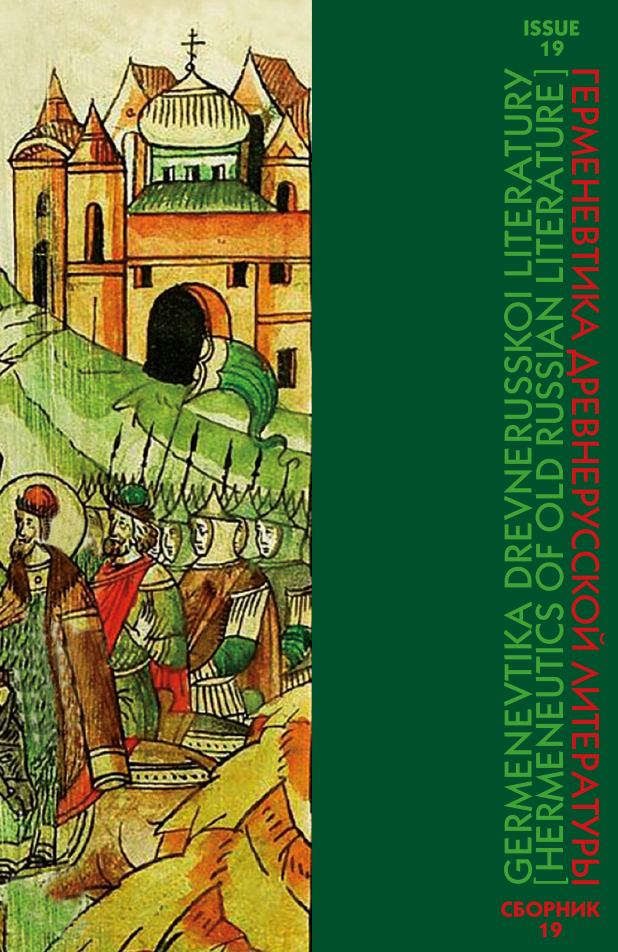Abstract:
The main action of the novel Laurus by E.G. Vodolazkin is set in Russia (Rus’) of the 15th century, and full of quotes and retelling of plots and fragments of a large number of translated medieval works that existed in the Russian Middle Ages. The central place among them belongs to a narration (a novel) about Alexander the Great — its manuscript is kept under the icon as the Holy Scripture. The article examines the juxtaposition of situations and problems of the main characters of Vodolazkin’s novel and situations and the personality of Alexander whose image permeates the text of the modern novel accompanying the worldview searches of its heroes. Young Arseny is impressed by the renowned commander primarily because he is a tireless explorer of lands — countries, peoples, bizarre creatures and phenomena of those lands. Later Arseny (who becomes Amvrosy and Laurus on his way) comprehends the category of the path in connection with Alexander, namely the path of salvation for the soul of Ustina. The prediction of Alexander’s tragic death — “on the iron earth under the bone sky” — is projected by the heroine, Ustina, onto her own fate, but there is no fatal inevitability in the prediction: its retelling does not prevent another heroine, Anastasia, from giving a birth to a child successfully. At the end of the novel there appears a question: “What a strange life Alexander had. What was its historical purpose?” The question is asked by Anastasia who is falling asleep, and Laurus answers it himself: “Life has no historical purpose. Or it’s not primary. It seems to me that Alexander realized this only right before his death.” Actually it’s the hero of Vodolazkin’s novel who understands this instead of Alexander before his imminent death. Having conquered the world Alexander died before reaching his home land in accordance with the prediction of Antiphon. Laurus who is saving the soul of his beloved, returns to his home place and dies with a newborn baby in his arms, thereby compensating for the loss that shook him and Ustina at the beginning of life.
References:
- Vodolazkin, E.G. Lavr: roman [Laurus: a Novel]. Moscow, AST Publ., 2014. 448 p. (In Russian)
- Kalafatich, “Semanticheskaia funktsiia ritoricheskoi konstruktsii mise en abyme v proizvedeniiakh Evgeniia Vodolazkina” [“The Semantic Function of the Rhetorical Construction Mise en Abyme in the Works of Eugene Vodolazkin”]. Znakovye imena sovremennoi russkoi literatury: Evgenii Vodolazkin [Iconic Names of Modern Russian Literature: Eugene Vodolazkin], ed. by Anna Skotnitskaya and Janusz Svezhy. Krakov, Wydawnictwo Uniwersytetu Jagiellonskiego Publ., 2019, pp. 109–119. (In Russian)
- Letopisets Ellinskii i Rimskii [Chronicler — Hellenic and Roman], 1, text prep. by. O.V. Tvorogov, and S.A. Davydova. St. Petersburg, Dmitrii Bulanin Publ., 1999, pp. 85–178. (In Russian)
- Makhinina, , Sidorova, M., Nasrutdinova, L. “Drevnerusskii tekst v romane E. Vodolazkina ‘Lavr’ (‘Aleksandriia’)” [“Old Russian Тext in the Novel by E. Vodolazkin ‘Laurus’ (‘Alexandria’)”]. Filologiia i kul’tura, no. 1 (55), 2019, pp. 184–189. (In Russian)
- Khronograf zapadno-russkoi redaktsii. Russkii khronograf [Chronograph of the Western Russian edition. Russian Chronograph]. Polnoe sobranie russkikh letopisei [Complete Сollection of Russian Сhronicles], XXII. Moscow, Iazyki slavianskikh kul’tur Publ., 2005, pp. 1–32. (In Russian)






